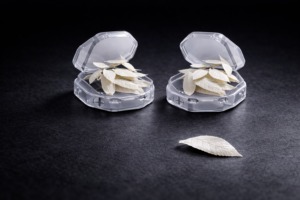Recovering from deviated septum surgery is a crucial step in improving your breathing and overall nasal health. This surgery, designed to fix a deviated nasal septum, aims to straighten the cartilage and bone in your nose to help you breathe better and feel more comfortable. Knowing what to expect during your recovery can make the process easier and help you heal more smoothly. Here’s a simple guide to help you through the recovery period.
Initial Post-Operative Care
After your deviated septum surgery, taking good care of yourself is very important to help you heal. In the first few days, you will likely see swelling and bruising around your nose and eyes. This is normal and should get better gradually. You might feel some discomfort, but your doctor will give you medication to help with the pain. To reduce swelling, use cold packs on your face and keep your head elevated, especially when you’re lying down or sleeping. Make sure to rest and avoid lifting heavy things or doing intense activities, as these can affect how well you heal.
Nasal Congestion and Breathing
You may have trouble breathing through your nose right after the surgery because of congestion. Surgeons often place splints or packing inside your nose to keep everything in place. These usually stay in for about a week, so you might feel stuffy during this time. It’s important to follow your surgeon’s instructions on how to take care of your nose to prevent problems and help your nose heal properly.
Managing Discomfort and Pain
Feeling some pain and discomfort after deviated septum surgery is normal, but it should get better over time. Take the pain medication your doctor prescribes, and avoid using over-the-counter medications like aspirin or NSAIDs, as they can interfere with healing. If your pain is very severe or if you have other concerns, contact your surgeon right away. They are there to help you and make sure your recovery goes well.
Avoiding Complications
To avoid problems, follow your doctor’s instructions carefully. Stay away from activities that could put strain on your nose, such as lifting heavy objects or doing intense exercise. Don’t blow your nose forcefully, as this can disrupt the healing process. Make sure to attend all follow-up appointments with your surgeon, as these are important for checking your progress and solving any issues. Also, try to stay away from smoke and strong smells, which can irritate your healing nasal tissues.
Diet and Hydration
Eating well and drinking plenty of water are important for a smooth recovery. Choose soft foods that are easy to chew, so you don’t strain your facial muscles. Staying hydrated helps your body heal, so drink lots of water. Avoid salty or spicy foods, as they can irritate your nasal passages and make you feel uncomfortable. A balanced diet and good hydration will support your recovery and make it more comfortable.
Long-Term Care and Follow-Up
Recovery from deviated septum surgery doesn’t end after the first week. Long-term care includes going to follow-up visits with your surgeon to make sure your septum is still in the right place and that your nasal passages are working well. It can take several months for your nose to fully heal and for you to see the final results. Be patient and give your body the time it needs to recover completely. Your surgeon will guide you through this process.
Emotional and Psychological Adjustment
Recovering from surgery can be tough not just physically but also emotionally. It’s normal to feel a mix of emotions as you adjust to changes in your breathing and appearance. If you’re feeling stressed or anxious, talking to friends, family, or a mental health professional can help. Keeping a positive outlook and focusing on the benefits of the surgery can make it easier to get through this time.
When to Seek Medical Advice
Watch out for any serious issues like heavy bleeding, intense pain, or signs of infection, such as fever or unusual discharge. If you notice any of these problems, contact your surgeon immediately. Early treatment can prevent complications and help ensure a smoother recovery. Your surgeon is the best person to help with any concerns and provide the support you need.
Recovery Environment and Lifestyle Adjustments
Creating a comfortable and supportive environment at home can significantly impact your recovery from deviated septum surgery. Make sure you have a quiet, cozy space where you can rest and elevate your head comfortably. Avoiding exposure to irritants like smoke, dust, and strong odors is crucial, as these can hinder the healing of your nasal passages. You might also want to adjust your daily routine to accommodate your recovery, such as setting up a comfortable area for reading or watching TV while you rest. Additionally, limit visits from friends and family to avoid catching any colds or infections that could affect your healing. Keeping your environment clean and making small lifestyle adjustments can help you recover more smoothly and comfortably.
Conclusion
Recovering from deviated septum surgery involves taking care of yourself, managing pain, and following your surgeon’s advice. By understanding what to expect and preparing for the recovery process, you can make things easier on yourself and achieve better results.
For detailed advice and support tailored to your recovery, stay in touch with your surgeon. Their guidance will help you navigate this process and make sure you get the best results from your treatment for a deviated nasal septum.




